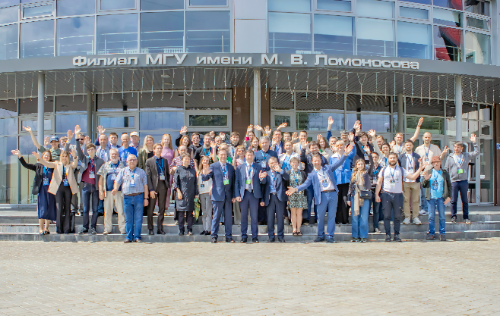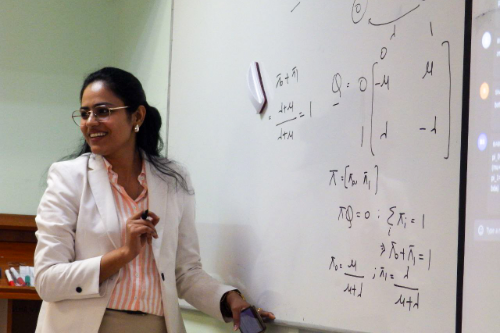In her opening speech, KarRC RAS Director General remarked that one of the main tasks of the workshop is to seek and prepare new project ideas.
— It is important for us to stimulate interdisciplinary research and the workshop is the very platform where scientists from different institutes and departments can share their developments and discuss new initiatives, — Olga Bakhmet emphasized.
Dmitry Bazegsky, Acting Head of the Laboratory for Integrated Arctic Studies of the Department for Multidisciplinary Research (DMR) KarRC RAS, told about the results of the roundtable “BRICS+ as a platform for joint research in the Arctic”. The event took place in Petrozavodsk on September 19 within the 2nd international conference “Regional cooperation within the BRICS: modern environmental and nature management issues”.
— Our BRICS partners are interested in Arctic exploratory research, first of all, in predicting the climate change and its consequences. Russia regards environmental conservation and scientific research as one of the main tasks in the Arctic. Based on this premise, we at the roundtable tried to answer the following questions: is it possible to combine the efforts of various actors for the study of the Arctic region, can the climate agenda become common for our countries, and what among its scientific and practical developments can Russia offer to its foreign partners, - said Dmitry Bazegsky.

Dmitry Bazegsky on the results of the roundtable “BRICS+ as a platform for joint research in the Arctic”
The roundtable aroused great interest in the scientific and expert community. Researchers, experts, representatives of federal authorities from Moscow, St. Petersburg, Kaliningrad and the Leningrad Region joined the live broadcast. In total, about 50 persons participated in the discussion. The video recording of the event can be viewed at https://vkvideo.ru/video-165130519_456239241
A large-scale study of the ecological wellbeing of the Arctic territories of European Russia was presented by Alexander Volkov and Natalia Roslyakova of the Laboratory for Integrated Arctic Studies DMR KarRC RAS. Previously, the scientists analyzed data and statistics provided by official bodies and agencies, conducted a mass questionnaire survey of the population of the Arctic territories and a series of expert interviews with representatives of municipal and regional authorities, local businesses and NGOs. This effort helped to identify key environmental problems and the specific features of ecological and economic development in the Arctic. We told you more about this topic in the post «Experts elucidate how businesses, authorities and citizens interact for ecological wellbeing of Arctic urban communities».
Colleagues are now analyzing the determinants of the pro-environmental activity of the population of Russia's Arctic regions, in particular the Murmansk Region.
– Pro-environmental activities include involvement in the work of environmental organizations and participation in green actions, donations or support to environmental organizations, reporting violations of the law to the police, routine green practices such as opting for eco-labeled goods, sorting household wastes, – explained Alexander Volkov.
The researchers investigated whether local people were satisfied with the state of the environment in their place of residence, learned about how the population perceived the importance of specific environmental issues, clarified people's involvement in pro-environmental practices and assessed its determinants.
– We found that among the most pressing environmental problems in their place of residence, people in the Murmansk Region pointed out issues with household garbage and industrial wastes, as well as air pollution. The respondents put the main blame for the emergence of environmental issues on business, government policy and local authorities. Only 9% of respondents realize their personal responsibility for contributing to environmental problems. The most widespread pro-environmental practices are the non-littering habit, participation in subbotniks, and reducing the use of packaging and disposable tableware in everyday life. Much fewer people engage in practices associated with additional financial and time costs: submitting official appeals to the authorities, buying eco-labeled goods, donating money, and sorting wastes, – the economist said.













